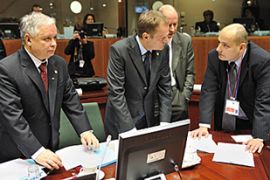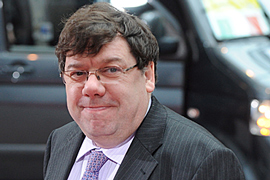EU agrees climate change deal
Bloc’s greenhouse gas emissions to be cut by one-fifth below 1990 levels by 2020.

Jose Manuel Barroso, the European commission president, said the agreement showed that the 27-nation bloc was serious about tackling global warming.
He said: “These are the most ambitious proposals anywhere in the world. Europe has today passed its credibility test. We mean business when we talk about climate.”
Nicolas Sarkozy, France’s president who chaired the summit, said: “We are starting to change the way we do things in Europe – talking less and doing more.”
Economy package
Earlier, the leaders agreed a $260bn stimulus package designed to dig the continent’s troubled economies out of recession.
The deal sees each EU member invest on average the equivalent of 1.5 per cent of their gross domestic product (GDP) into their economies in order to temper the impact of a global recession.
“What Europe has proved unanimously today is that it is ready to act in a united way to deal with the global downturn,” Gordon Brown, Britain’s prime minister, said.
“We will continue to reject the do-nothing approach and we will not stand by and let the recession take its course.”
Ahead of the summit, Germany had expressed reservations about ploughing so much public money into the economy and resisted pressure to contribute more than it judged necessary to revive the German economy again.
Officials revised earlier versions of the conclusions to say the package should be worth “about” 1.5 per cent of GDP rather than “at least” 1.5 per cent as seen in an earlier draft.
Lisbon treaty
A deal was also reached to pave the way for Ireland to stage a second referendum on a stalled package of key reforms to the EU, the Lisbon treaty, which was rejected by the Irish public in June.
 |
| Cowen confirmed Ireland would hold a second referendum on the Lisbon treaty [EPA] |
Brian Cowen, the Irish prime minister, said he was prepared to call a new referendum as long as promised guarantees on concessions were delivered.
“I have said that I would be prepared to return to the public with a new package and seek their approval of it,” Cowen said.
“Today we have the clear evidence the European Union is ready to respond [to the concerns displayed by the Irish people in the June plebiscite,” he said.
Under the deal, Ireland would try to hold a new referendum by November 2009 in exchange for guarantees on key issues including an assurance that it does not lose its EU commissioner.